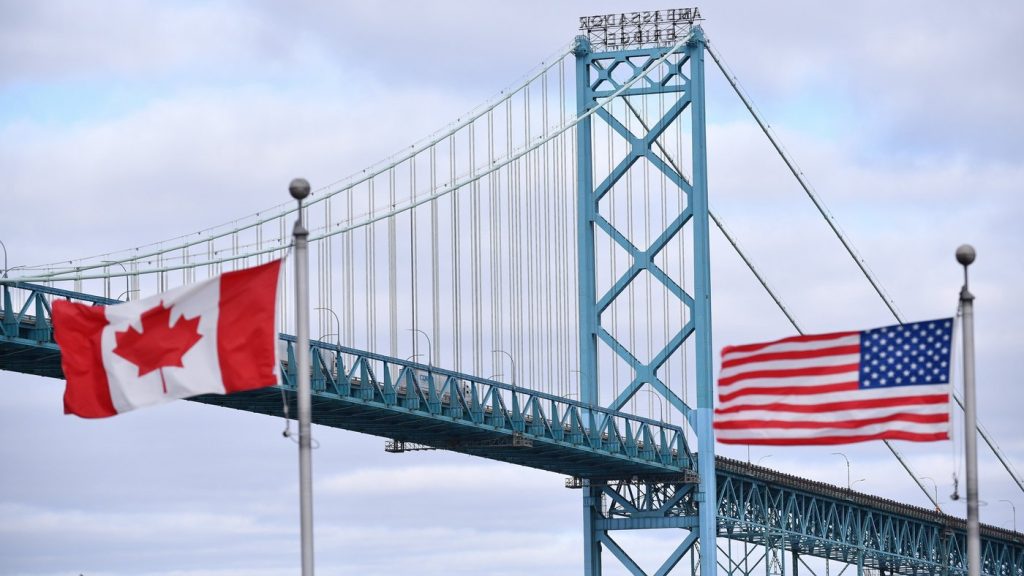How the U.S. writers strike could affect TV, film productions in Toronto

Posted May 3, 2023 7:01 pm.
Last Updated May 4, 2023 6:52 pm.
As television and film writers in the United States begin a strike, there are signs it could impact Toronto and other major Canadian film production regions.
According to the City of Toronto’s film office, an unnamed production has stopped filming as a result of the writers’ strike. However, officials said that should not be cause for alarm for Toronto’s film sector.
“Toronto is definitely going to feel impacts from the [Writers Guild of America] strike. We do a lot of service production here, and of course, service production is affected,” Marguerite Pigott, the City of Toronto’s film office commissioner and director of entertainment industries, told CityNews.
“Even if the strike continues for an extended period of time, we, of course, all hope it won’t, but if it does, the domestic industry is still strong. Toronto has a built-in resilience there that is absolutely critical, so there will still be jobs in Toronto (and) there will still be production in Toronto.”
Pigott said one of the unknowns when it comes to the next several months is how many scripts are banked, finalized and ready to go.
“I think that every smart business mitigates against risk, right? So everybody knew that the writer strike was a possibility. Given that it’s a possibility, you are going to do things like get as many scripts written ahead of time as you possibly can and bank those scripts so that you have as minimal disruption to your production flow as possible,” she said.
“We’re definitely seeing that studios and streamers have done that, and that will protect our production levels in the short-term to a degree, not entirely.”
RELATED: City of Toronto installs power hubs for film crews at 2 popular locations on trial basis
Pigott said although the film office is still issuing new permits to shoot, there has been a reduction in the amount of film scouting — another indicator of the sector slowing down.
“Scouting is a bit of a bellwether for production levels three to four months from now, so if the strike continues for an extended period we will definitely see increasingly low production levels,” she said.
“As it is, we’re definitely seeing things are softening a little bit. But we do have a number of smaller feature films and smaller television shows shooting now that would have banked their scripts ahead of time.”
When it comes to the film sector in Toronto and the impact it has, it’s big business. Pigott said approximately 35,000 people are employed in the industry locally, and it generates roughly $2.5 to 2.6 billion in direct spending on production.
“We’re in the top five (of jurisdictions for film and television production), and our studio space is growing enormously because Toronto is so popular,” she said.
“The only cap on our growth had been insufficient studio space. It’s one of the reasons why domestic productions sometimes find it difficult to shoot here. There’s not a lot of space.”
Roughly 30 per cent of the current television and film production in Toronto is domestic, Pigott said, and with a potential slowdown in productions from the U.S., there will be more opportunities for Canadian productions.
“One of the reasons why the number is 30 per cent is because Toronto is such a popular jurisdiction for international production, and so it sets up here, it pays top dollar, it lives here for a long time,” she said.
“Sometimes it’s harder for domestic production to find a home here. What I expect to see as an outcome of the strike is when we look back at 2023, that 30 per cent domestic number will definitely be higher than in previous years.”
Despite some uncertainty, Pigott predicted there would be a bounce-back after the writers’ strike, similar to what was seen after the peak of COVID-19.
“We are looking at it as a temporary disruption. It’s a serious disruption. I don’t mean to downplay it, but a period of time from now, it will be behind us, and we will be booming,” she said.
Compensation, staffing levels, workload, emergence of A.I. top issues in U.S. writers strike: Canadian counterparts
When it comes to how Toronto and Canada will be affected by the labour action south of the border, the president of the Writers Guild of Canada said service production could definitely be affected should there be an extended strike.
“Some of those productions will continue to try and shoot those scripts, but they won’t have writers on set to make adjustments to make dialogue adjustments to adjust the script because of location issues. So they’re going to try and push through with the scripts that they have written,” Alex Levine, who is also a screenwriter, told CityNews on Wednesday.
“When those scripts are finished being shot and there are no more scripts to shoot, those productions will go dark and all those Canadian crews will be out of a job.
“I’m worried that [companies] think they have enough new programming to outlast the writers, which you know obviously is not a great thing because then this work stoppage could continue.”
Writers in Canada aren’t affected by the current strike in the U.S. However, Levine said many of the issues facing members of the Writers Guild of America are similar to concerns here. The Writers Guild of Canada’s current agreement with the Canadian Media Producers Association ends at the end of the year.
Levine said compensation is a major source of concern for striking workers, especially with the advent of online streaming services.
“Writers are a big part of the process of making stories on screen. We write the stories and without the writers, there are no stories,” he said.
“We’re now seeing more and more programs with smaller orders, sometimes as few as eight or six episodes where we used to have 22 and that’s really changed the way that the streamers and the producers and the broadcasters hire writers.
“They hire writers for shorter contracts, they pay them less weekly, they pay them to develop shows more often than to produce television shows, and they don’t pay them for post-production.”
RELATED: Writers strike looks to be a long fight as Hollywood braces
By having shorter shows, Levine said writers are struggling to maintain a steady income.
“What we’re seeing now is a hollowing out of the middle class of the American writers. So there are many writers that are struggling to make ends meet because it’s always been a gig economy, contract by contract, but the contracts are getting so short it’s hard to cobble together a living,” he said.
“The overall compensation going to writers has reduced at the same time, the overall profits that the streamers are making have increased and we’re seeing a widening divide.”
Part of the legacy structure of compensation involves residual payments for when television show episodes and movies are broadcast, but it doesn’t contemplate
“[Companies] are trying to figure out a scheme or a way that writers can benefit if those programs become incredibly popular and successful and that used to be because you would have further a success of sales of those programs, but these days you generally selling a program forever an all time to one streamer,” Levine said.
“We need a new system to compensate writers for making successful programs that people continue to watch past the first run or a second run or become part of the culture and run forever.”
Another major concern in the writers’ strike, he said, involves the use of artificial intelligence and how it could potentially be used in the scriptwriting process.
“That’s something that the U.S. streamers have refused to discuss with the writers except by saying that we’ll keep talking about it, and what the writers are doing is they’re trying to seek assurances that their jobs won’t be overtaken or won’t be devalued or minimized by the rise of artificial intelligence,” Levine said.
“I think most people would agree that we want our stories to be told by human beings, not by machines, so I hope that everybody comes to their senses and comes to a mutually agreeable resolution of that really scary issue.”








